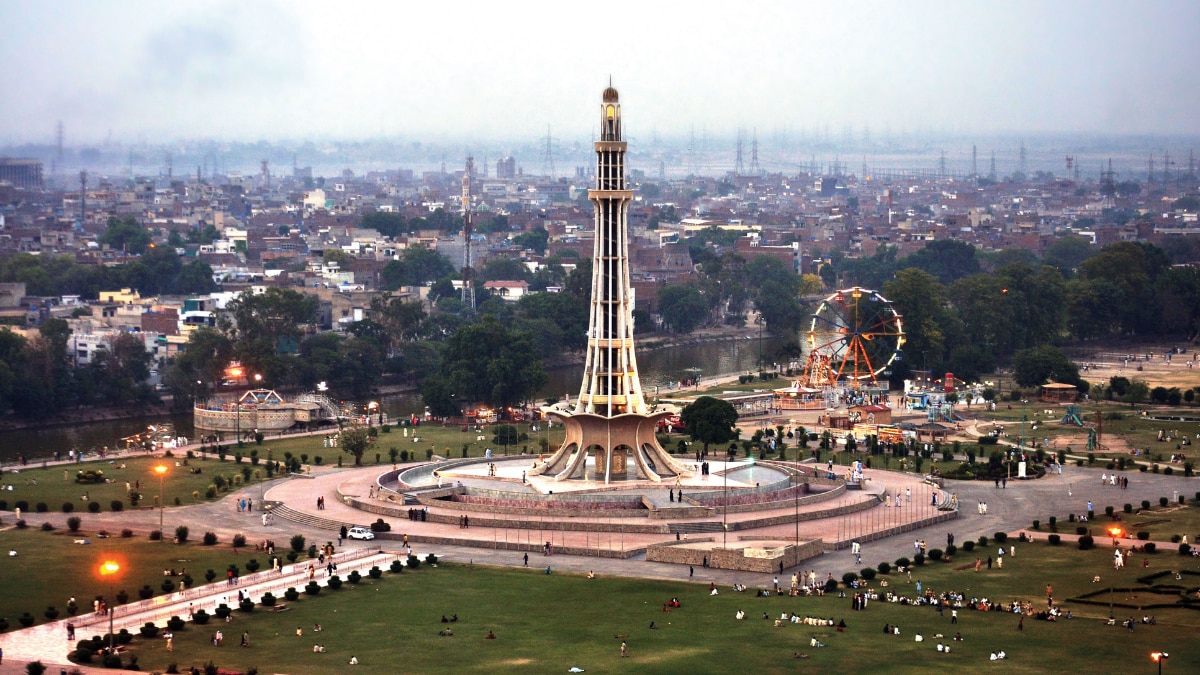Building on the foundation of How Power and Hubris Shape Modern Society, it becomes essential to explore the often unseen effects that power-driven decisions have on individuals and institutions. While overt displays of authority are visible markers of power, the subtle, psychological, and societal consequences of decisions made in pursuit of power are less apparent but equally impactful. Understanding these hidden layers deepens our comprehension of how power influences not only the course of history but also the fabric of daily life.
- The Unseen Psychological Effects of Power-Driven Decisions
- Power Dynamics and Information Manipulation
- Ethical Blind Spots and Moral Erosion
- Ripple Effects on Marginalized Groups
- Institutional and Systemic Consequences
- Mitigation through Transparency and Reflexivity
- Connecting Back: Recognizing Hidden Impacts of Power
The Unseen Psychological Effects of Power-Driven Decisions
a. How authority alters cognitive biases and moral judgments
Research indicates that authority can significantly distort individual cognition. Classic experiments, such as Milgram’s obedience study, reveal that individuals under authoritative influence are more likely to commit acts they might normally find morally objectionable. This shift occurs because power reduces the tendency to scrutinize decisions critically, leading to moral disengagement. Leaders wielding authority often unconsciously dismiss ethical considerations, rationalizing harmful decisions as necessary for the greater good. Over time, such cognitive biases can entrench a decision-making environment where moral boundaries are blurred, fostering a culture of compliance rather than ethical reflection.
b. The role of confirmation bias in reinforcing power-centric choices
Confirmation bias, the tendency to favor information that confirms existing beliefs, becomes amplified within power structures. Leaders and decision-makers often seek validation for their choices, ignoring dissenting evidence that might suggest alternative, more ethical, or equitable paths. For instance, organizational studies have shown that executives may overlook red flags or contradictory data to justify their strategic decisions, thus reinforcing their authority and sidelining accountability. This bias creates a feedback loop, solidifying power-based decisions and making systemic change more difficult.
c. Impact on decision-making under stress and high stakes
Under high-stakes or stressful situations, the influence of power can intensify cognitive distortions. Leaders often resort to heuristics or shortcuts, such as overconfidence or risk-taking, which can lead to catastrophic outcomes. Historical cases, such as financial crashes or political crises, demonstrate how decision-makers under pressure may prioritize immediate power consolidation over long-term societal well-being. Recognizing these psychological distortions is crucial for fostering decision environments that incorporate checks and balances, especially in critical sectors like security, healthcare, and finance.
Power Dynamics and Information Manipulation
a. How power holders control narratives and suppress dissent
Power often manifests through control over information. Authoritarian regimes, for example, manipulate media and suppress dissenting voices to shape public perception. Such control creates an echo chamber where only sanctioned narratives circulate, diminishing the diversity of viewpoints crucial for healthy societal debate. The suppression of dissent not only consolidates power but also stifles innovation and accountability, as alternative perspectives are silenced or marginalized.
b. The consequences of information asymmetry on societal trust
When decision-makers possess privileged access to information while the public remains in the dark, societal trust erodes. Studies in political science suggest that transparency correlates positively with societal cohesion. Conversely, information asymmetry fosters suspicion, conspiracy theories, and social fragmentation. For example, the Watergate scandal and subsequent cover-up eroded public trust in government, illustrating how secretive decision processes can have long-lasting societal repercussions.
c. Case studies of covert decision processes and societal fallout
Historical instances like covert military interventions or clandestine corporate mergers often reveal the societal fallout of undisclosed decision-making. The 2003 Iraq invasion, for instance, was driven by intelligence that was later scrutinized for being manipulated or misrepresented, leading to widespread skepticism and destabilization. Similarly, corporate scandals involving hidden agendas have caused economic downturns and loss of trust among consumers. These cases underline the importance of transparency in safeguarding societal stability.
Ethical Blind Spots and Moral Erosion
a. How power can diminish moral accountability over time
Long-term exposure to power can lead individuals and institutions to develop a diminished sense of moral accountability. Power tends to create a sense of invulnerability, where leaders justify actions that violate ethical norms by framing them as necessary or unavoidable. A notable example is the Watergate scandal, where initial misconduct was rationalized as a means to protect national interests, eventually leading to moral disengagement at multiple levels.
b. The subtle shifts in ethical standards within powerful institutions
Research indicates that within powerful organizations, ethical standards often shift gradually, a process sometimes called “ethical fading.” As power consolidates, superficial adherence to norms can give way to pragmatic justifications for unethical decisions. For example, the banking sector’s role in the 2008 financial crisis exposed how corporate cultures shifted focus from customer well-being to short-term profits, eroding ethical standards over time.
c. Long-term societal consequences of moral disengagement
When moral disengagement becomes systemic, societal trust diminishes, and institutions become fragile. Public cynicism grows, leading to disengagement and apathy. The erosion of moral standards can foster a climate where corruption, inequality, and injustice thrive, ultimately destabilizing social cohesion and democratic processes.
The Ripple Effects of Power-Driven Decisions on Marginalized Groups
a. How decision-making rooted in power perpetuates inequality
Power-centric decision-making often neglects the needs of marginalized populations, perpetuating systemic inequalities. For instance, urban development policies driven by economic elites have historically displaced vulnerable communities, reinforcing social stratification. By prioritizing short-term economic gains over inclusive planning, decision-makers deepen societal divides.
b. Unintended harm and social fragmentation
Decisions made without considering marginalized voices can lead to social fragmentation and unintended harm. The marginalization of indigenous communities in resource extraction projects exemplifies how power-focused policies ignore local rights, resulting in conflicts, cultural erosion, and long-term social instability.
c. The importance of inclusive decision processes to mitigate hidden harms
Involving marginalized groups in decision-making processes fosters equity and minimizes hidden harms. Participatory governance models and community-led initiatives have proven effective in creating more resilient, just societies. Recognizing the value of diverse perspectives mitigates the negative ripple effects of unchecked power.
Institutional and Systemic Consequences of Power-Centric Policies
a. Entrenchment of systemic inequalities and corruption
Power-driven policies often entrench systemic inequalities by reinforcing existing hierarchies. Corruption, as seen in many political systems, becomes a systemic feature, diverting resources and skewing policy outcomes in favor of elites. Transparency International’s reports consistently show how corruption impairs development and erodes public trust.
b. Degradation of democratic processes and accountability
Unchecked power diminishes democratic accountability. When decision-making is opaque or concentrated, democratic institutions weaken, leading to authoritarian tendencies. Examples include the erosion of judicial independence in several countries, where power consolidates at the expense of rule of law.
c. How unchecked power decisions lead to societal destabilization
Historical patterns demonstrate that unchecked power often leads to societal destabilization, whether through civil unrest, economic collapse, or political upheaval. The fall of empires and revolutions frequently stem from decision-making that ignores systemic vulnerabilities and public discontent.
The Role of Transparency and Reflexivity in Mitigating Hidden Consequences
a. Strategies for increasing decision-making transparency
Implementing open data policies, independent audits, and participatory decision processes can enhance transparency. Governments and organizations adopting these strategies foster trust and reduce the risk of hidden, harmful decisions.
b. Cultivating reflexivity among leaders to recognize power biases
Training leaders in ethical reflection and bias recognition can mitigate the adverse effects of power. Programs that promote humility and self-awareness, such as ethical leadership workshops, help prevent moral erosion and promote responsible decision-making.
c. Building resilient institutions to prevent adverse long-term outcomes
Robust checks and balances, independent oversight bodies, and a culture of accountability are essential. Institutional resilience ensures that power is exercised responsibly and that long-term societal health remains a priority.
Connecting Back: How Awareness of Hidden Consequences Deepens Understanding of Power and Hubris
Recognizing the hidden consequences of power-driven decisions underscores the importance of humility and ethical vigilance in leadership. As explored, unchecked power can distort moral judgment, manipulate information, and perpetuate social inequalities, leading to systemic instability. By understanding these dynamics, leaders and citizens alike can foster more transparent, inclusive, and resilient institutions.
“True leadership involves not only wielding power but also recognizing its unseen impacts—those that shape society long after decisions are made.”
In essence, awareness of these hidden effects deepens our appreciation for the delicate balance between authority and responsibility. It reinforces the need for humility, continuous ethical reflection, and systemic safeguards—principles that echo the core themes of How Power and Hubris Shape Modern Society. Only through such vigilance can societies prevent the corrosive effects of unchecked power and foster sustainable, equitable progress.
























